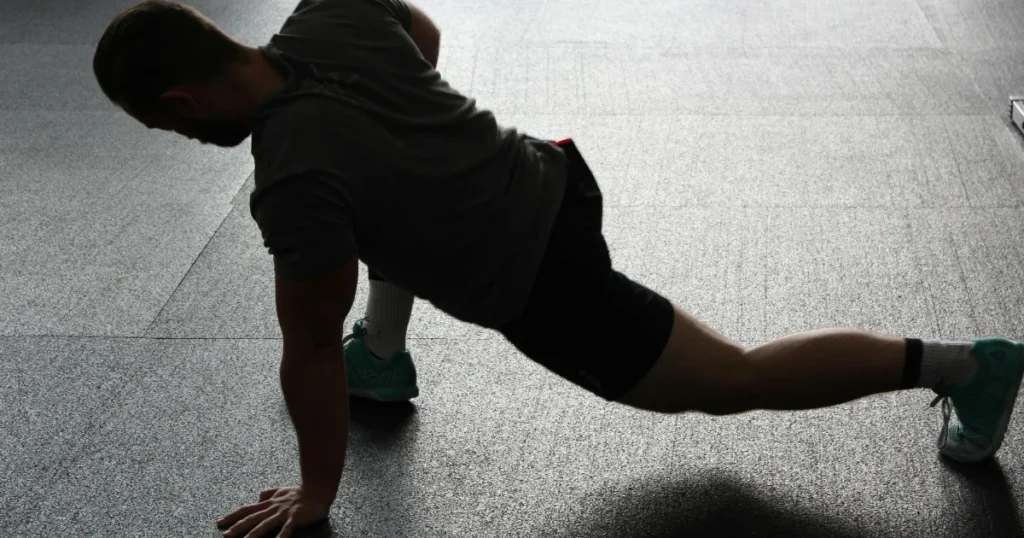Healthy Habits: Simple Steps to a Healthier You
Ever felt overwhelmed by the idea of starting fresh? Maybe you’ve tried diets that left you drained or fitness plans that never stuck. The truth is, improving overall health doesn’t require a grand plan—it starts with small, steady choices. Imagine waking up with more energy, facing stress with calm, and feeling proud of how far you’ve come. This guide is your roadmap, built for real life, not perfection.
Think of healthy habits as tiny wins adding up to big changes. Whether it’s swapping a soda for water or swapping the couch for a walk, every choice matters. This article isn’t about drastic overhauls but the power of persistence. By the end, you’ll know how to turn good intentions into routines that stick.
Table of Contents
Understanding the Science of Habit Formation
Healthy habits start with knowing how your brain makes actions automatic. Let’s dive into why some behaviors stick and how to use this for wellness.
Your Guide to Lasting Healthy Habits
Starting on a wellness journey involves more than just a single decision; it requires a series of conscious choices and actions that build momentum over time. Embracing healthy habits is the foundation for long-term well-being, influencing everything from your energy levels to your overall health outlook. This guide will explore key areas where small, consistent changes can lead to significant improvements in your quality of life. We’ll cover nutrition, physical activity, preventive health, and the psychological tools that support lasting behavior change.
The goal is to create a sustainable lifestyle, not a short-term fix. By focusing on one area at a time, you can build a strong foundation for a healthier, more vibrant you. Let’s explore the practical steps you can take to integrate these practices into your daily routine.
How Habits Form in the Brain
The basal ganglia in your brain is like a habit factory. Every time you do something like brush your teeth, your brain gets stronger. This makes the actions easier over time, saving your brain energy.
The Habit Loop: Cue, Routine, Reward
Charles Duhigg’s habit loop breaks it down: Cue → Routine → Reward. For instance:
- Cue: A morning alarm (cue) makes you exercise (routine).
- Reward: You get endorphins or feel accomplished (reward), making you want to do it again.
Why Habits Are Essential for Long-Term Health
Willpower wears off, but habits stay strong. Here’s a comparison:
| Willpower | Habits for Wellness |
|---|---|
| Needs daily effort | Becomes automatic in 21-30 days |
| Can easily exhaust | Creates lasting lifestyle changes |
Research shows people who rely on habits are 2x more likely to keep up healthy choices. By setting up cues and rewards, you can make goals like “exercise more” automatic.
Assessing Your Current Lifestyle: Where to Begin
Starting a health journey means looking inward. Ask yourself: What habits help me feel good? Which ones are hard? Small steps today can lead to big changes.
Start by checking your daily habits in important areas:
- Nutrition: Keep a food diary for a week. Note when, what, and how you feel after eating.
- Activity: Track your steps, workouts, or rest. See how your energy changes during the day.
- Sleep: Record your sleep times and quality. Does your sleep routine refresh you?
- Stress: Find out what stresses you and how you handle it. Do your methods calm you or stress you more?
- Social connections: Think about time with friends and family. Does your schedule allow for quality time?
Use a journal, apps like MyFitnessPal, or a calendar to track your habits. Look for patterns, not perfection. Celebrate your good habits, like regular breakfasts or walks. Notice where you could improve without judging yourself.
Start with one area at a time. Small changes in daily health routines can make a big difference. Begin with something simple, like a 10-minute walk or an early bedtime. Becoming aware is the first step to creating lasting habits.
Nutrition Habits That Transform Your Health
Small changes in your diet can make a big difference. These tips help make healthy living habits easy to follow every day.
-balanced Eating Made Simple
Try the “plate method” to start. Fill half your plate with veggies like spinach or carrots. Add a quarter with lean protein (grilled chicken, tofu) and another quarter with whole grains (quinoa, brown rice).
Swap processed snacks for nuts or fruit. You don’t need to count calories. Just focus on eating a variety of foods.
Fuel Your Body with Smart Nutrition
Developing good eating habits is a cornerstone of a healthy lifestyle. Making smart healthy choices starts with what you put on your plate. A diet rich in fruits and vegetables, lean proteins, and whole grains provides the essential nutrients your body needs to function optimally. Planning your meals can be a powerful tool. Consider incorporating meal prep into your weekly routine to ensure you have nutritious options ready to go. A healthy breakfast is particularly important, as it can set the tone for the day and help regulate your blood glucose levels.
When you’re on the go, a homemade granola bar or a handful of nuts and seeds can be a much better option than processed snacks. Pay attention to the fat content in foods, specifically limiting saturated fats to support heart health. These dietary adjustments are crucial for managing weight and can contribute to successful weight loss. According to resources like Harvard Health Publishing and the NIH Body Weight Planner, a balanced diet is fundamental in preventing conditions like type 2 diabetes and reducing the risk of obesity-related morbidity. Adopting these principles for eating healthy is a key part of your personal Game Plan for wellness.
Hydration: The Overlooked Health Champion
Water is key for your body, from digestion to brain function. Here are some tips to stay hydrated:
- Infuse water with lemon or cucumber.
- Use a reusable bottle to track your water intake.
- Eat hydrating foods like watermelon.
Aim for urine that’s pale yellow. Staying hydrated boosts your mood and focus.
Mindful Eating Practices
Eat without distractions, like phones or TV. Chew slowly to help digestion and enjoy flavors. Take a break halfway through your meal to check if you’re still hungry.
This can help you avoid overeating and enjoy your food more.
Meal Preparation Strategies
- Batch Cook: Roast veggies or grill proteins on weekends for quick meals during the week.
- Prep Containers: Make Mason jar salads or portion snacks like yogurt with berries.
- Meal Planning: Spend 10 minutes weekly planning meals and making grocery lists.
Building Physical Activity Into Your Daily Routine
Start by making movement fun, not a chore. daily health routines work best when you enjoy the exercise. Look beyond the gym for activities like dance, hiking, or gardening.

Finding Movement You Actually Enjoy
Find activities that bring you joy. Yoga can be calming, cycling adventurous, or cleaning fun with music. Try different things to keep you motivated. Even a 15-minute walk after dinner helps.
The Power of Consistency Over Intensity
Studies show that regular, moderate exercise is better than intense, occasional workouts. A daily 30-minute walk is more beneficial than a weekend marathon. Aim for steady progress to build habits for a healthier life. Slowly increase intensity to avoid burnout.
Incorporating Exercise Into Busy Schedules
- Break workouts into 10-minute chunks: stretch during commercials, take stair breaks every hour.
- Active commuting: bike to work or park farther from stores.
- Family fitness: dance parties or weekend hikes turn exercise into shared fun.
No gym? Use bodyweight exercises like push-ups, squats, or online videos. Small steps lead to a lifelong habit of movement.
Essential Healthy Habits for Mental Wellbeing
Mental wellbeing is like a quiet engine that powers improving overall health. Small daily habits like mindfulness meditation and keeping a gratitude journal help us deal with stress. These habits for wellness don’t take up a lot of time. They just need a bit of mindful effort.
- Mindfulness Meditation: Spend 5-10 minutes daily focusing on your breath. Studies show this lowers cortisol levels and boosts emotional control.
- Gratitude Journaling: Write three positive experiences each evening to shift your focus from stress to gratitude.
- Worry Time Blocks: Schedule 10 minutes daily to process concerns, preventing them from taking over your day.
Digital wellness is important too. Set screen-free hours before bed and use app limits to reduce anxiety triggers. Just as exercise strengthens muscles, these habits strengthen our mental flexibility. Regular mental check-ins—asking “How am I feeling today?”—help spot stress early. If challenges persist, reaching out to professionals is a sign of strength, not weakness. Integrating these practices creates a foundation where mental and physical health work together, making habits for wellness a holistic journey. Every step, no matter how small, contributes to a healthier, more balanced life.
Embrace an Active Lifestyle
Regular physical activity is essential for both physical and mental health. The key is finding activities you enjoy so you can stay consistent. Whether it’s a brisk walk, a dance class, or strength training, aiming to be physically active most days of the week can have profound benefits. It helps maintain a healthy weight, strengthens your bones and muscles, and improves your mood. For those looking for community and motivation, joining Cycling Clubs can be a great option.
In areas like the Quad Cities, organizations such as the Quad Cities Bicycle Club and Friends of Off Road Cycling offer structured opportunities to get moving. They organize Weekly Rides, Local Events, and competitive road events. Even younger generations can get involved through groups like the Iowa Scholastic Mountain Bike League. Regular exercise is known to improve cognitive function and may help slow cognitive decline as we age. Integrating physical activity into your life doesn’t have to be complicated; it’s about making a commitment to move your body regularly.
Sleep Hygiene: The Foundation of Good Health
Quality sleep is essential, not a luxury. It boosts your immune system, improves focus, and keeps your mood stable. Making small changes to your lifestyle choices for health can make nights restful and energizing for the next day.
Creating the Optimal Sleep Environment
Make your bedroom a sleep haven with these tips:
- Keep the room cool (60–67°F) for better rest.
- Use blackout curtains or an eye mask to block light.
- Invest in noise-canceling earplugs or a white noise machine.
- Choose breathable bedding like cotton or bamboo.
Bedtime Rituals That Promote Quality Rest
Consistent routines tell your brain it’s time to sleep. Try these:
- Read a book (not on a screen) for 15–30 minutes.
- Practice deep breathing or light stretching.
- Drink herbal tea like chamomile to relax.
Managing Screen Time for Better Sleep
Blue light from phones and TVs messes with melatonin. Set limits:
- Set a “no screens” rule 1–2 hours before bed.
- Enable night mode or use blue light blocking glasses.
- Replace scrolling with journaling or puzzles to unwind.
Adding these healthy habits to your routine makes sleep a priority. Better sleep enhances your overall well-being.
Social Connections: The Often Forgotten Aspect of Health
Healthy living starts with strong social bonds. Research shows people with good friends live longer and feel happier. It’s not just about having many friends. It’s about having meaningful, supportive relationships.
The Power of Preventive Health and Hygiene
Maintaining your health involves proactive measures beyond diet and exercise. Simple hygiene practices are a first line of defense against many common illnesses, including respiratory illnesses caused by a respiratory virus. Regular hand washing with soap and water for at least 20 seconds is one of the most effective ways to remove germs. When soap and water aren’t available, using a hand sanitizer with at least 60% alcohol is a good alternative.
Preventive care also includes staying up-to-date with medical guidance. Timely flu vaccinations can significantly reduce your risk of getting sick during flu season. Scheduling routine medical exams allows for early detection of potential health issues, a strategy highlighted in publications like Harvard Men’s Health Watch and by institutions like the Ohio State University and the NIH Clinical Center. Taking these steps is part of a comprehensive approach to Staying Healthy and protecting yourself and those around you.
Building a Supportive Community
Find common interests to start. Join clubs, volunteer, or online groups that match your values. For example, join a running group if you love fitness, or a book club if you enjoy reading.
Being regular is key. Regular meetings build trust and strengthen bonds.
- Attend community events to meet like-minded individuals
- Use platforms like Meetup or local libraries to find groups
- Reach out to old friends and schedule regular check-ins
Setting Boundaries for Healthier Relationships
Healthy relationships need balance. Setting boundaries helps protect your emotional health. Here’s how to start:
- Communicate needs clearly using “I” statements (e.g., “I feel drained when calls last over an hour”).
- Learn to say no to things that take too much of your time or energy.
- Be kind to yourself when setting limits. Taking care of yourself is part of healthy living.
Strong social ties are key to wellness. By valuing both connection and personal space, you create a supportive environment. This is where respect and support thrive.
Overcoming Obstacles: Making Your Healthy Habits Stick
Building healthy habits is more than just knowing what to do. It’s about facing real-life challenges. Stress, travel, or setbacks don’t mean you’ve failed. They’re part of the journey to better health.
- Perfectionism traps: Believing “all or nothing” stifles progress
- Life disruptions: Balancing goals with unexpected events
- Unrealistic timelines: Progress takes time—accept small wins
Here are some tips to stay on track:
- Habit stacking: Attach new actions to daily routines (e.g., stretch after morning coffee)
- Environment tweaks: Keep gym shoes by the door, veggies pre-chopped in the fridge
- Accountability check-ins: Track progress weekly, not daily, to avoid overwhelm

Mistakes are a part of the journey. Treat them as learning opportunities, not failures. Research shows being kind to yourself helps you succeed in the long run. If you miss a workout, try again tomorrow. If a vacation messes up your meal plans, set lighter goals next time.
Here are some tips for when you slip up:
- Write down what caused the setback and how to avoid it next time
- Restart immediately instead of waiting for “perfect” timing
- Adjust plans flexibly—health isn’t one-size-fits-all
It’s consistency, not perfection, that leads to lasting change. Celebrate your small victories, not just big milestones. Every small step brings you closer to lasting habits. Improving your health is a long journey. Keep moving forward.
Cultivating the Mindset for Change
Creating lasting healthy habits is as much a mental challenge as it is a physical one. Understanding the psychology behind behavior change can provide you with powerful tools for your wellness journey. Concepts like delay discounting, our tendency to prefer immediate, smaller rewards over larger, later ones, can explain why it’s hard to stick to long-term goals. To counteract this, you can use a technique called episodic future thinking, which involves vividly imagining your future self enjoying the benefits of your healthy choices today.
Modern digital technologies offer new ways to support this process. A systematic review of various health apps and tools shows they can help track progress, provide motivation, and foster a sense of accountability. By framing your goals and visualizing success, you can build the mental resilience needed to overcome obstacles. This mindset shift is crucial for turning temporary actions into lifelong habits.
Conclusion: Your Journey to a Healthier, Happier Life
Healthy habits are key to a fulfilling life. Start with small steps like eating mindfully, moving regularly, and sleeping well. Every choice, like drinking water instead of soda, adds up over time.
It’s not about being perfect. It’s about making progress. Begin with one area that’s important to you, like cooking meals ahead or going to bed early. These actions will become routines that help your mind, body, and social life.
Health is a journey, not a destination. Celebrate small victories, like a morning walk or avoiding late-night screens. Each success makes you stronger against setbacks. When faced with challenges, remember your past achievements.
Start today, no matter what you choose to focus on. It could be sleep, nutrition, or spending time with family. Share your goals with a friend or keep a journal to stay on track. With time and effort, these habits will become a part of your daily life, making you happier and more balanced.

